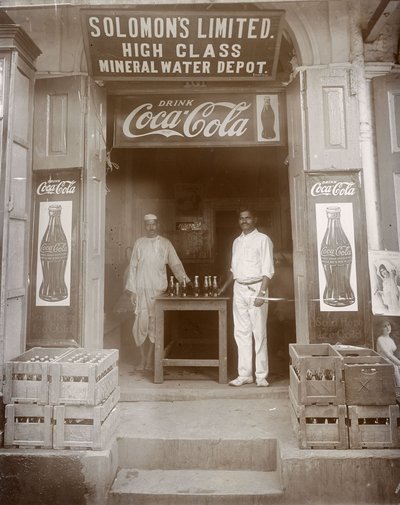What will Coca-Cola add to Myanmar?
As part of Coca-Cola’s “long-term commitment to generating lasting positive impact by bringing its global brands to Myanmar, also known as Burma, as the country opens up to the world”, Coca-Cola has been delivered into Myanmar for the first time in more than 60 years.
Coke is working towards establishing a bottling entity in Myanmar that will combine the company’s global expertise with the capabilities of the local soft drinks company Pinya Manufacturing Co Ltd. The prospective collaboration aims to bring the best of Coca-Cola’s global system business practices to Myanmar and leverage existing local business talent and market insights.
The intent is to commence local production as soon as possible, building on an initial distribution agreement established with Pinya to make product available throughout the country immediately. Coca-Cola has a general practice of operating as a local business in every market it serves, including selling, distributing, manufacturing and hiring locally.
Coca-Cola is also introducing an outdoor advertising program based on the global theme of ‘Open Happiness’ that is said to be based on the Coca-Cola brand’s core values of bringing people together and sharing happiness. The advertising invites people from Myanmar to open up a Coca-Cola and work together for a better future.
Currently Coke sells 1.8 billion servings of its beverages across more than 200 countries every day. It employs an impressive 146,200 people and produces more than 3500 different beverages. It also has a philanthropic arm, The Coca-Cola Foundation, which gave a total of US$273 million between 2002 and 2010. In June, The Coca-Cola Foundation gave a US$3 million grant to Pact, a non-governmental organisation, to support women’s economic empowerment and job creation initiatives throughout Myanmar. Pact’s efforts in Myanmar are consistent with Coca-Cola’s existing global commitment to enable the economic empowerment of five million women across its global value chain by 2020 through an initiative known as 5 BY 20.
Coca-Cola says its activities in Myanmar, following the lifting of US sanctions, are “governed by its well-established global standards for corporate ethics including strict adherence to its global human and workplace rights policy, supplier guiding principles, code of business conduct, and anti-bribery policies.”

As Coca-Cola re-enters Myanmar we are left to ponder about how this will impact on the local population. Access to Coke’s technology and expertise will undoubtedly add to the local skillset but will this prove ultimately advantageous? Even more problematic - how do we determine what is advantageous?
According to Wikipedia, when The Coca-Cola Company re-entered India in 1993 it bought the then best-selling drink, Gold Spot, from Parle and then withdrew it from the market in order to make space for Fanta. Was this advantageous for India?
Fanta’s history has always been a little murky. The drink originated in Nazi Germany in the middle of the Second World War. Unable to import Coca-Cola syrup due to trade embargos, Coca-Cola Deutschland designed a drink using locally available ingredients - whey and pomace - and called it Fanta. After the war, the Coca Cola Corporation regained control of the plant, formula and the trademarks to the new Fanta product - as well as the plant profits made during the war.
Now as Coca-Cola goes into Myanmar it is to be hoped that the advantages of access to best-practice beverage technology will improve access to clean water and have positive health benefits to the population in line with Coke’s philanthropic objectives will outweigh any impacts on local companies, traditions and culture.
Smart optical sensor detects ripeness for a quality drop
Queen Mary University of London researchers are developing a handheld, AI-powered grape ripeness...
Lighting up wine spoilage in real time with novel biosensor
A biosensor that glows when acetic acid is detected has been built by researchers to help...
Novel food processing technologies retain more nutrients in food
The potential of a range of modern techniques to improve the nutritional profiles of grain-,...











